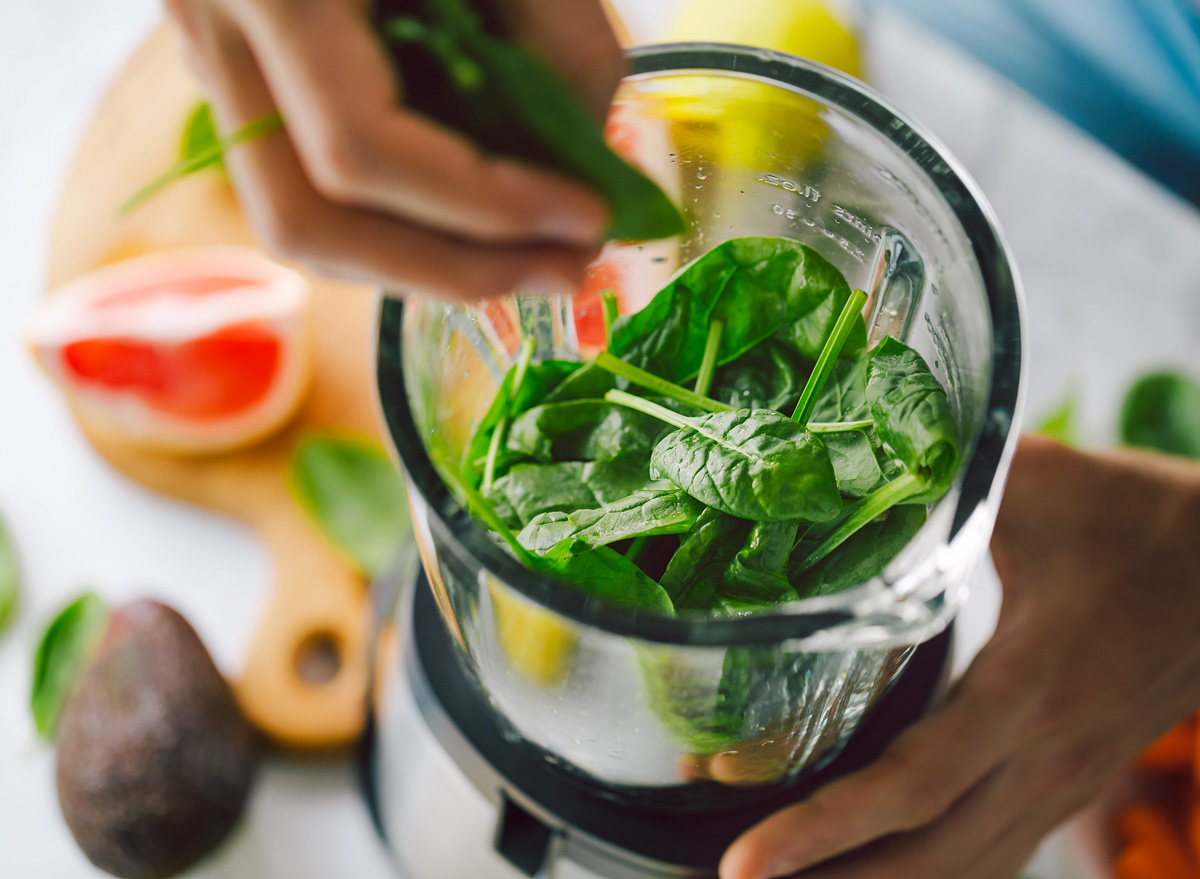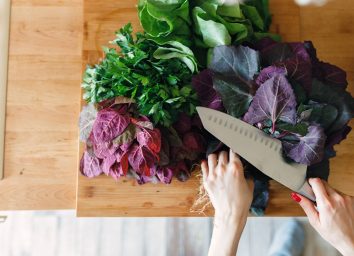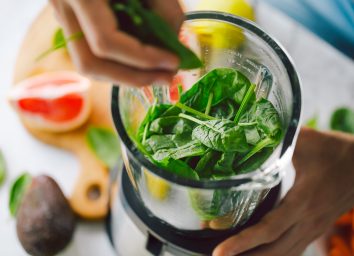One Major Effect Eating Spinach Has on Your Gut, New Study Says

There are a variety of health benefits associated with eating spinach, including improved blood pressure levels and cognitive function. However, a new study suggests this leafy green may help promote the growth of a certain gut bacteria that causes an undesirable outcome: bad gas.
Microbiologists from the University of Vienna and the University of Konstanz discovered that a sulfur-containing sugar called sulfoquinovose, which is found in leafy green vegetables, promotes the growth of an important bacteria in your gut. The study, which was recently published in The ISME Journal, revealed that bacteria in your gut produce a gas called hydrogen sulfide after you consume spinach.
Why does this matter? At low concentrations, this gas, which smells like rotten eggs, can have an anti-inflammatory effect on the body. However, large amounts of hydrogen sulfide in the intestine may be associated with cancer development. So, researchers set out to discover exactly how the gut microbiome, which contains myriad microbial species, metabolizes sulfoquinovose.
The gut microbiome plays a large role in how the foods we eat affect our overall health, meaning it impacts the way our body reaps the benefits from nutrients in food. As one of the lead authors of the study points out, many scientists still don’t know what substances this collection of microorganisms feed on—or how they even process them.
Prior to this study, one of the lead authors and his team of researchers found that the gut microbiome utilizes sulfoquinovose as a nutrient. For this study, the researchers took things one step further and analyzed stool samples to determine exactly how sulfoquinovose affects the microorganisms in the intestines.
“We have now been able to show that, unlike glucose, for example, which feeds a large number of microorganisms in the gut, sulfoquinovose stimulates the growth of very specific key organisms in the gut microbiome,” David Schleheck, study author and microbiologist at the University of Konstanz, said in a statement.
More specifically, the sulfosugar promotes the growth of Eubacterium rectale, which is one of the 10 most common gut microbes in healthy individuals.
“The E. rectale bacteria ferment sulfoquinovose via a metabolic pathway that we have only recently deciphered, producing, among other things, a sulfur compound, dihydroxypropane sulfonate or DHPS for short, which in turn serves as an energy source for other intestinal bacteria such as Bilophila wadsworthia. Bilophila wadsworthia ultimately produces hydrogen sulfide from DHPS via a metabolic pathway that was also only recently discovered,” Schleheck said.
So, what does all this mean? Essentially hydrogen sulfide is produced by both cells within the body and also by this group of specialized microorganisms in the gut microbiome after eating leafy greens. The researchers describe this discovery as surprising since prior research indicated that sulfate and taurine (which are two substances primarily found in proteins and fats, including meat) were known to be sources of the gas—not vegetables. Now, it’s clear that the sulfosugar in spinach can also produce hydrogen sulfide, aka smelly gas.
On the contrary, research has also indicated that spinach provides a host of benefits to the gut microbiome, which means you should still eat spinach and leafy greens regularly. The researchers are now curious to see if sulfoquinovose provides any health benefits beyond causing stinky flatulence. In fact, they have suspicions that sulfoquinovose can be used as a prebiotic, which is key for probiotics (good gut bacteria) to flourish.
Long story short, continue to eat your spinach but just remember not to overdo it and include vegetables of all colors like sweet potatoes and red and yellow peppers on your plate each week to diversify your gut bacteria and avoid bad gas.
For more, be sure to check out The Worst Foods for Gut Health. And to get all the latest food news delivered straight to your inbox every day, sign up for our newsletter!








